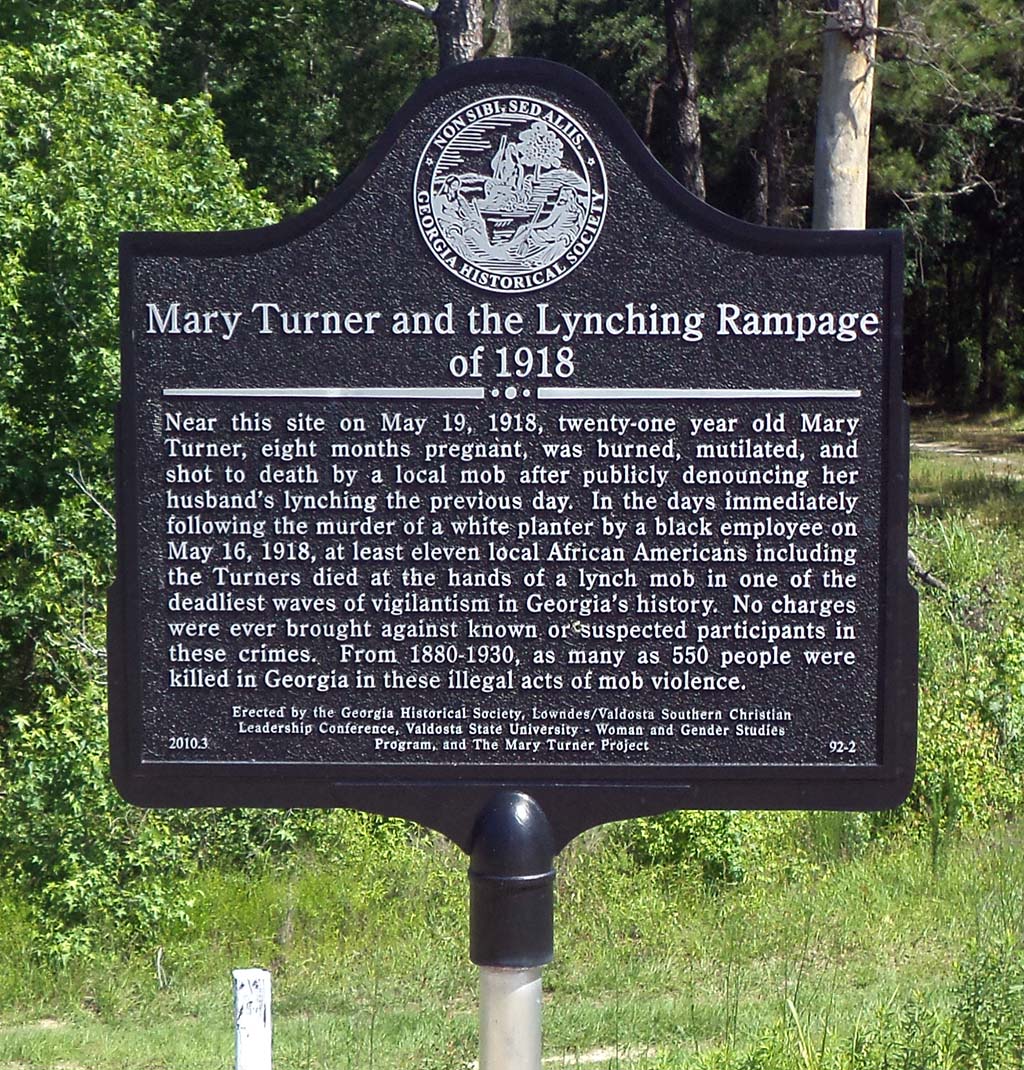Mary Turner was a young African American woman whose 1918 lynching in Lowndes County, Georgia, prompted National Association for the Advancement of Colored People (NAACP) officials to ask Missouri Congressman Leonidas Dyer to craft the 1922 Dyer Anti Lynching Bill. The bill passed the U.S. House of Representatives but never became the law of the land because it failed repeatedly in the U.S. Senate because of opposition from Southern Democratic Senators.
Turner was born Mary Hattie Graham in December 1899. Her parents, Perry Graham and wife Elizabeth “Betsy” Johnson were a sharecropping family with four children. On February 11, 1917, 17 year old Graham married Hazel “Hayes” Turner in Colquitt County, Georgia. The couple had two children, Ocie Lee and Leaster, before they were married.
Together they moved to Brooks County, Georgia, where they took jobs with plantation owner Hampton Smith. Smith was known for abusing and beating his workers, and for bailing people out of jail and having them work off their debt in his fields. Mary Turner was once severely beaten by Smith and when her husband threatened him, local authorities sentenced Hazel Turner to time on a chain gang.
On the evening of May 16, 1918, Smith was shot and killed by one of his workers. The following week Brooks County saw a mob driven manhunt which resulted in the lynching of 13 people including some who were in the local jail.
Nineteen year old and eight months pregnant Turner publicly denied that her husband had anything to do with the murder of Hampton Smith. He had been arrested among others on the farm. Her remarks further enraged the locals, and the mob turned on her, determined to “teach her a lesson.”
Upon hearing the news Turner fled but was caught the next day, May 19. A mob of several hundred people dragged her to Folsom Bridge, over the Little River, which separated Brooks and Lowndes counties. The mob tied her ankles, strung her upside down, doused her clothes in gasoline and set her on fire. While she was still alive, someone split open her stomach and her unborn baby slid out and fell to the ground. The mob stomped and crushed the baby to death. Turner’s body was riddled with hundreds of bullets. Later that night, the remains of Turner and her baby were buried a few feet away from where they were murdered.
Three days later, the murderer of plantation owner Hampton Smith was caught, and killed in a shootout with police. During the week long rampage, more than 500 African Americans fled from Brooks and Lowndes counties in fear of their lives from the angry mobs.
Although local officials were given names of instigators and 15 specific participants, no one was ever charged or convicted of the murders. A historical marker memorializing Turner was placed near the lynching site and dedicated on May 15, 2010.

